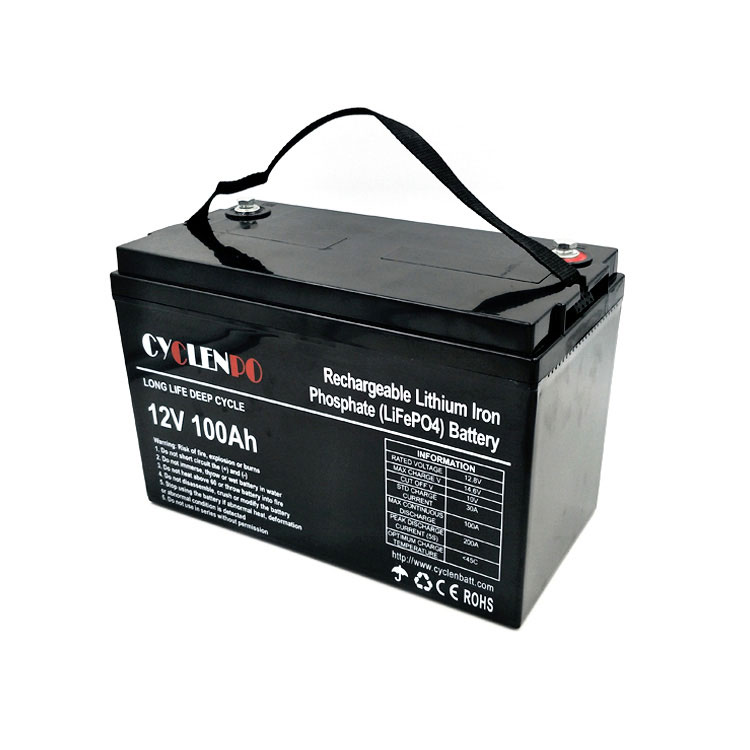LiFePO4 batteries (lithium iron phosphate, lithium phosphate battery) have several advantages over LiPo (Lithium Polymer) batteries. Most importantly, LiFePO4 batteries are much safer. LiFePO4 batteries also have a much longer cycle. LiFePO4, and consist of iron and phosphate which have a much lower environmental impact than the cobalt used in LiPo batteries.
It is important to have a good understanding of the operating characteristics of LiFePO4 batteries – most importantly, how to charge and care for them safely. In this article we present some using notifications. Failure to follow these instructions can quickly result in severe, permanent damage to the battery and its surroundings。

# Choosing the RIGHT lithium phosphate battery for your application
Evaluate your application to determine the “average” discharge amperage rate needed for operation. Choose a LiFePO4 battery which can easily handle the current needs of the application. The current draw of the application can be measured using a multi-meter or meters made specifically for the radio-controlled hobby. When measuring the current, servos should be in operation when a reading is made. Actual current draw will be greater in flight due to increased load on the servos (an on-board data logger can provide accurate servo current draw).Desired flight time and battery weight should also be considering when selecting a battery.

# Charging a LifePo4 battery
A LiFePO4 compatible charger which can apply the “constant current/constant voltage” charge technique (cc/cv) is required for charging LiFePO4 batteries. Chargers should be built in cell balancers.
1. NEVER charge LiFePO4 batteries with a charger not specifically compatible with LiFePO4 batteries! ONLY use a charger which can apply the “constant current / constant voltage” (cc/cv) charge technique with LiFePO4 voltage settings. Although a LiPo charger also applies this charge technique, the charger MUST be LiFePO4 compatible. DO NOT attempt to charge your LiFePO4 battery on a LiPo-only charger.
2. Always charge Life batteries in an area with adequate ventilation.
3. Never charge Life batteries at currents greater than the “3C” rating of the battery (“C” equals the rated capacity of the battery).
4. NEVER allow the temperature of LiFePO4 batteries to exceed 140°F [60°C] at any time. Overheating will cause permanent damage. Do not reuse your LiFePO4 battery if you suspect it has been damaged in any way.
5. ALWAYS discontinue charging a LiFePO4 immediately if at any time you witness smoke or see the battery starting to swell. This may cause the battery to rupture and/or leak, and the reaction with air may cause the chemicals to ignite, resulting in fi re. Disconnect the battery and leave it in a safe, fi reproof location (ideally outside).
6. NEVER continue to charge LiFePO4 batteries if the charger fails to recognize full charge. Overheating or swelling of the LiFePO4 cells is an indication that a problem exists. The batteries should be disconnected from the charger immediately and placed in a fireproof location!!
# Connecting and Using LifePo4 batteries
1.The voltage of each LiFePO4 cell in the battery pack should not be drawn below 2.5V. Drawing the voltage below this can cause permanent damage to the pack or make the battery non-recognizable by the charger. A 2-cell LiFePO4 battery with a nominal voltage of 6.6V should not be discharged below 5.0V.
2.NEVER discharge LiFePO4 batteries at currents which exceed the discharge current rating of the battery, as this can often cause a cell to overheat. Do not allow a LiFePO4 cell to exceed 140°F [60°C] during discharge.
# H andling storage & Transportation of lithium iron phosphate battery
1.ALWAYS store LiFePO4 cells/packs in a fireproof container and place in a secure location away from children.
2.NEVER leave a LiFePO4 battery unattended at ANY TIME while being charged or discharged!!
3.NEVER put a LiFePO4 pack in the pocket of any clothing!
4.ALWAYS have a lithium-approved “Class D type” fi re extinguisher or a bucket of sand available at all times.
5.NEVER allow LiFePO4 batteries to come in contact with water or moisture at any time. If batteries do come in contact with water or moisture, immediately dry them with a clean towel.
6.NEVER store batteries near an open flame or heater.
If you are looking for 12v lithium ion battery manufacturers, 24v lithium battery manufacturer, 36v lithium ion battery manufacturers, 48v lithium battery manufacturer,then Cyclen is the best choice for you. As a qualified and reliable supplier (learn more about us), we can customize different (voltage capacity dimension discharge rate etc) battery as you require.